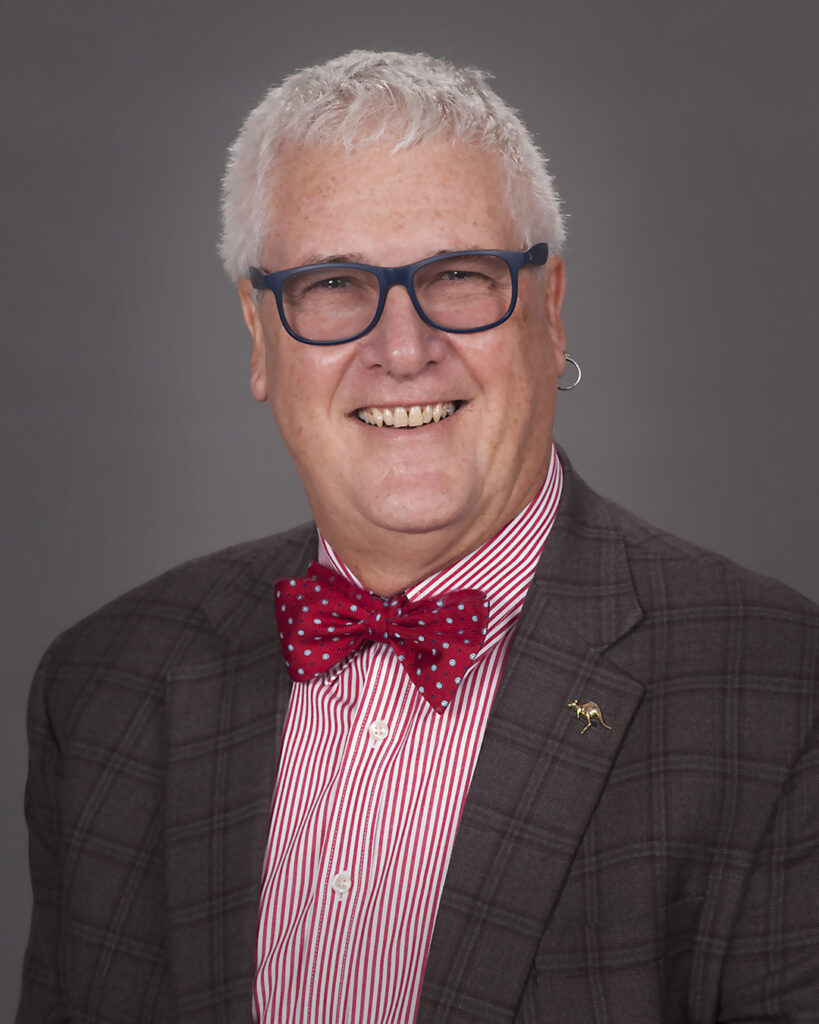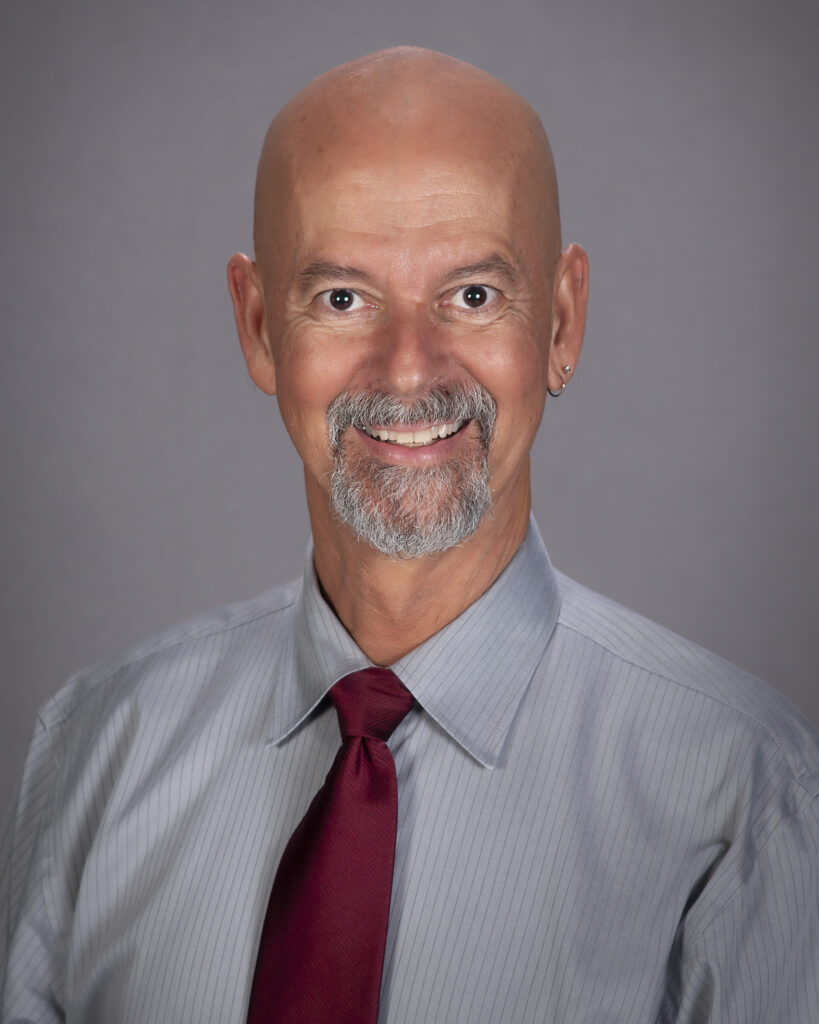VMBS Faculty Members Recognized With University-Level Research, Teaching Awards
Story by Megan Myers, VMBS Communications
Three faculty members at the Texas A&M School of Veterinary Medicine & Biomedical Sciences (VMBS) were among the 25 recipients from across Texas A&M University to be recognized with 2023 Distinguished Achievement Awards by The Association of Former Students.
The university-level awards honor faculty and staff who exhibit the highest standards of excellence and are held in high esteem by their colleagues.
Dr. Larry J. Suva, a professor and head of the VMBS’ Department of Veterinary Physiology & Pharmacology, was recognized in the research category, while Drs. Johanna Heseltine, a clinical associate professor, and Anton Hoffman, a clinical professor, were recognized for teaching.
These awards are among the most prestigious available to faculty and staff members at Texas A&M. Recipients are chosen by a campuswide committee of faculty, staff, students, and former students.
The recipients will be honored with a commemorative plaque and engraved watch during an awards luncheon on April 24 in the Memorial Student Center’s Bethancourt Ballroom.
Dr. Larry J. Suva

Suva is a leading expert on the skeletal consequences of disease, with research interests including breast cancer bone metastasis, multiple myeloma, fracture healing, bone regeneration, bone anabolism, and the investigation of rare bone diseases and bone infections.
“A feature of his work throughout his career is a willingness and eagerness to take on difficult and important topics of clinical and social relevance,” said one nominator. “Dr. Suva’s career and research continue in a steep trajectory, the most recent example of which is the work he has had funded by the NIH to study fracture healing in the context of the bone disease in Down’s Syndrome.”
Some of Suva’s most important research contributions have been the discovery of human parathyroid hormone‐related protein (PTHrP) and the hormonal regulation of bone metastasis.
“Dr. Suva is considered one of the world’s foremost experts on PTHrP,” the nominator said. “He is one of the most recognized and respected scientists in this very important field. The impact on the treatment of osteoporosis because of Dr. Suva’s seminal discovery is truly remarkable, and Texas A&M University is fortunate to have recruited such an exceptional scientist to join its ranks.”
Suva joined the VMBS in 2015 and is dedicated to advancing research, graduate student success, and diversity, equity, and inclusion at the school.
“Dr. Suva’s life is characterized by enthusiasm for research and devotion to science. He nurtures the same enthusiasm in his trainees and he creates an environment in which they can succeed,” the nominator said. “All of the graduate students and postdoctoral fellows who have had the privilege of receiving education and training from Dr. Suva have gone on to successful careers in academia, private practice, government agencies, or large corporations.”
Prior to joining the VMBS, Suva received his Ph.D. in medicine from the University of Melbourne (Australia), was a postdoctoral researcher at Merck, and was a faculty member at Harvard Medical School.
Dr. Johanna Heseltine

Heseltine plays an important role in veterinary students’ preclinical education and in their clinical year at the Texas A&M Veterinary Medical Teaching Hospital. Her courses generally focus on the urinary tract, respiratory system, and other aspects of internal medicine.
“Dr. Heseltine is really an amazing mentor and I look up to her a great deal,” said one of Heseltine’s former students. “Her willingness and enthusiasm to teach made me eager to learn and fueled my passion for veterinary medicine. I appreciate that she was available to us for questions about cases but also for general life questions.”
Heseltine’s courses rely on student participation and increasingly complex real-world scenarios. She also was a vital member of the faculty team that revised Texas A&M’s veterinary curriculum in 2017.
“She has contributed to curricular development, created novel educational modules, generates scholarship focused on teaching and learning, and is strongly focused on facilitating the development of lifelong learners,” one nominator said. “She has been recognized several times for her excellence as a teacher, through the Richard H. Davis Award (2016 and 2019), Juan Carlos Robles Emanuelli Teaching Award (2018), the John Miliff Award for Teaching (2020), and an AFS school-level Teaching Award (2022).”
In addition to training veterinary students, Heseltine is an educator and mentor for interns and residents in the Small Animal Teaching Hospital’s Internal Medicine Service.
“Dr. Heseltine must act as a role model, helping students and residents navigate emotionally charged clients and challenging cases,” the nominator said. “She helps her trainees acquire complex physical skills such as heart and lung auscultation as well as interpretation of diagnostics such as ultrasounds and blood work. Simultaneously, Dr. Heseltine helps her students and residents understand best practices in medical decision making and provides clear, professional feedback.”
Heseltine joined the VMBS’ Department of Small Animal Clinical Sciences in 2014 after earning her DVM degree from the University of Saskatchewan in 1998, attaining diplomate status from the American College of Veterinary Internal Medicine in 2004, and spending several years in private practice and other academic teaching positions.
Dr. Anton Hoffman

Hoffman has been a member of the VMBS’ Department of Veterinary Integrative Biosciences for 35 years. He has contributed substantially to the education of both veterinary and graduate students.
“Dr. Anton Hoffman embodies what it means to be a superior teacher,” one nominator said. “He is not satisfied with the status quo or teaching a set of facts. Instead, Dr. Hoffman thinks outside that box and works to continually improve his teaching and approach to class in order to provide students the most meaningful and long-lasting learning experiences as possible.”
His courses focus on small and large animal anatomy, physiology, organ dysfunction, and professional and clinical skills. In addition to classroom and laboratory teaching, Hoffman has served as a mentor for many DVM students, including two who have gone on to become VMBS faculty members themselves.
“From the moment I met him, it was obvious to me that education was a priority and teaching anatomy was a passion of his,” said one of Hoffman’s former students. “One of Dr. Hoffman’s most attributing qualities is his research to deliver creative, thought-provoking, and appropriate lessons that match all students’ abilities. For example, Dr. Hoffman used illustrations and life-sized models to help us understand the intricacies that lie within anatomy.”
Some of Hoffman’s past awards and recognitions include the Presidential Professor for Teaching Excellence Award in 2011, the Zoetis Distinguished Veterinary Teaching Award in 2014, the National Pfizer Distinguished Veterinary Teaching Award in 2011, the Chancellor’s SLATE Award in 2009, and twice being selected as a qualifying examination question writer for the National Board of Veterinary Medical Examiners.
“One of the attributes that makes Dr. Hoffman truly amazing as an instructor is his ability to connect with his students and engage them,” the nominator said. “He fosters an atmosphere that ensures students know that they can always go to him whether it is a problem they are having with course content or in their personal lives.”
Hoffman received his DVM degree from Texas A&M University in 1986 and spent a brief period at a small animal practice in San Antonio before returning to his alma mater in 1987 as an anatomy instructor.
###
For more information about the Texas A&M College of Veterinary Medicine & Biomedical Sciences, please visit our website at vetmed.tamu.edu or join us on Facebook, Instagram, and Twitter.
Contact Information: Jennifer Gauntt, Director of VMBS Communications, Texas A&M College of Veterinary Medicine & Biomedical Sciences, jgauntt@cvm.tamu.edu, 979-862-4216


